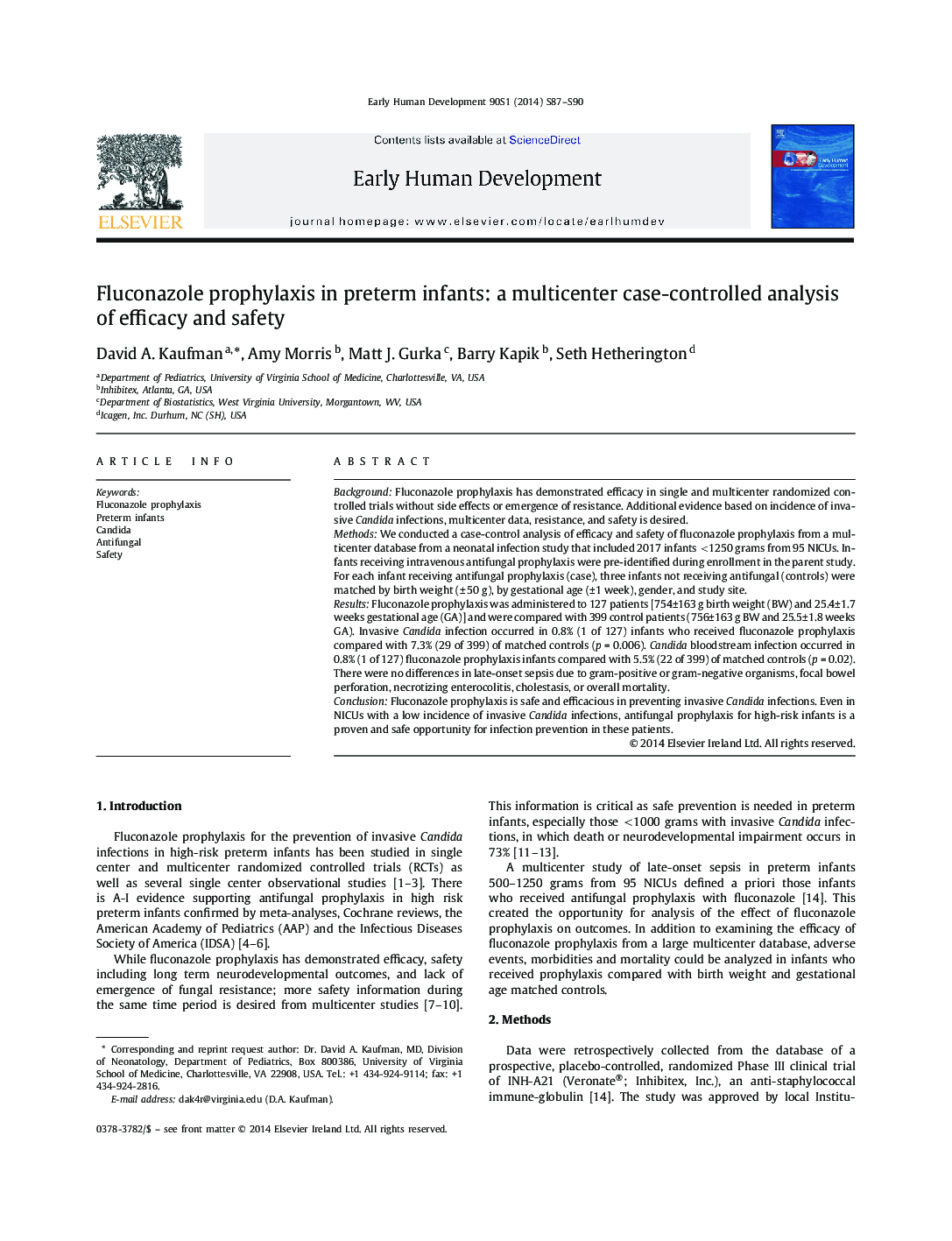| Article ID | Journal | Published Year | Pages | File Type |
|---|---|---|---|---|
| 3916612 | Early Human Development | 2014 | 4 Pages |
ABSTRACTBackgroundFluconazole prophylaxis has demonstrated efficacy in single and multicenter randomized controlled trials without side effects or emergence of resistance. Additional evidence based on incidence of invasive Candida infections, multicenter data, resistance, and safety is desired.MethodsWe conducted a case-control analysis of efficacy and safety of fluconazole prophylaxis from a multicenter database from a neonatal infection study that included 2017 infants <1250 grams from 95 NICUs. Infants receiving intravenous antifungal prophylaxis were pre-identified during enrollment in the parent study. For each infant receiving antifungal prophylaxis (case), three infants not receiving antifungal (controls) were matched by birth weight (±50 g), by gestational age (±1 week), gender, and study site. Results: Fluconazole prophylaxis was administered to 127 patients [754±163 g birth weight (BW) and 25.4±1.7 weeks gestational age (GA)] and were compared with 399 control patients (756±163 g BW and 25.5±1.8 weeks GA). Invasive Candida infection occurred in 0.8% (1 of 127) infants who received fluconazole prophylaxis compared with 7.3% (29 of 399) of matched controls (p = 0.006). Candida bloodstream infection occurred in 0.8% (1 of 127) fluconazole prophylaxis infants compared with 5.5% (22 of 399) of matched controls (p = 0.02). There were no differences in late-onset sepsis due to gram-positive or gram-negative organisms, focal bowel perforation, necrotizing enterocolitis, cholestasis, or overall mortality.ConclusionFluconazole prophylaxis is safe and efficacious in preventing invasive Candida infections. Even in NICUs with a low incidence of invasive Candida infections, antifungal prophylaxis for high-risk infants is a proven and safe opportunity for infection prevention in these patients.
